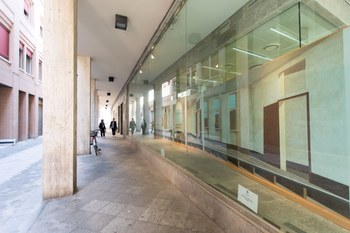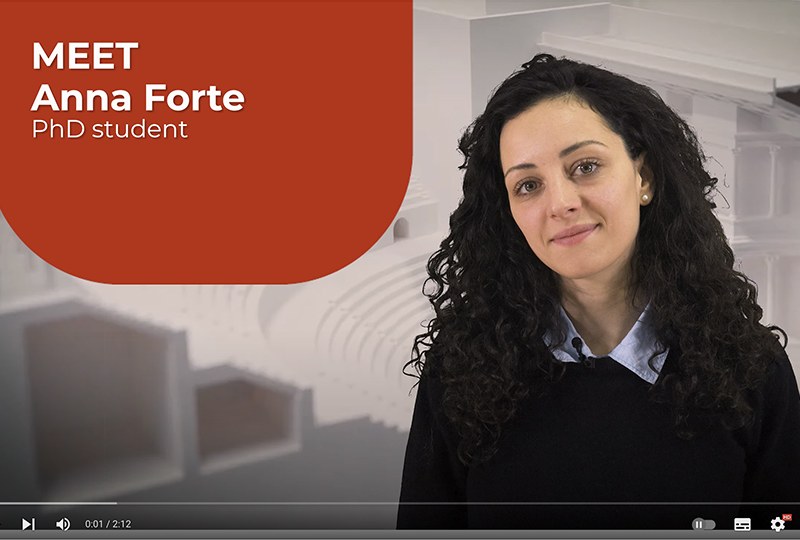Overview
The PhD programme promotes cross-disciplinary research with a multidisciplinary approach, as well as transferable skills to allow you to work in complex research groups.
Culture, environment and innovation: research that unites
The substantive goal of the PhD in Cultural and Environmental Heritage is to bridge the many different perspectives involved in the study of cultural and environmental processes under one, cross-disciplinary perspective, favouring a new approach that focuses on transversal research questions rather than on issues limited to an individual discipline. To date, the study of Cultural and Environmental Heritage has privileged mono-disciplinary perspectives that could achieve excellent levels of speacialisation.
Fully integrated, multi-disciplinary approaches entailing a close collaboration between humanities, biological sciences, social sciences, and law – such as the one proposed in the present programme – are still severely underrepresented. This transversal research will be conducted into shared structures and laboratories, and will aim to train Doctors of Philosophy who are highly specialised and yet able to participate to multidisciplinary research teams.
Programme aims
Leggi dettagliProspects
Leggi dettagliMeet Anna Forte PhD Student - High-precision Geomatic surveying for Cultural Heritage assets
Anna Forte, a PhD student at the DICAM Department, discusses her doctoral research in advanced geomatic techniques applied to cultural heritage. Her research focuses on investigating the methods, potentials and limitations of the geomatic instruments that enable high-precision three-dimensional surveying. Specifically, she explores techniques that allow for the creation of high-resolution digital models to faithfully reproduce the surface geometry of objects.
The PhD program offers two curricula.
- Curriculum 1, CULTURAL AND ENVIRONMENTAL HERITAGE - MEMORY, PROTECTION, RIGHTS
focuses on themes of: cultural memory linking tangible and intangible heritage; historical-diagnostic analysis of cultural and environmental heritage; the relationship between society and nature, with regard to the relationship between city, environment and landscape; governance of common heritage. - Curriculum 2, SCIENCE AND TECHNOLOGIES FOR CULTURAL HERITAGE
focuses on the development of materials, methods and technologies for the detection, characterization, conservation and management of material environmental and cultural heritage. It is specifically aimed at qualifying “conservation scientists”, a new professional profile that was recently approved by MIC.
Curriculum research topics of Cultural and Environmental Heritage
Leggi dettagliCurriculum research topics of Production technologies, characterisation of materials, conservation.
Leggi dettagliInternationalization features
The PhD programme presents with a marked international vocation expressed through:
- The advertisement of courses and activities in international websites, to facilitate applications from international students;
- Teaching and lectures held by world-leading international experts whose participation is funded or co-funded by the Univeristy of Bologna (e.g. invited international scholars already approved by the Institute of Advanced Studies);
- Drawing on the international network of Committee members and their institutions to offer stages and internships in international and overseas research centres. The official PhD website will provide links to the helpdesk of the Ravenna Campus International Office. Through this link international students can receive support upon arrival (welcome week, buddy system, language courses, etc), and ask questions related to visa, residence permit, and medical assistance.;
- The presence of a Curriculum in English (“Science and Technologies for Cultural Heritage”) aimed at studying technological innovations related to conservation and restoration of Cultural Heritage. Based on previous experience, it is expected that this particular Curriculum will generate a positive feedback on the general level of internationalisation.
Doctoral courses that preceded the present proposal were already characterised by a considerable degree of interaction with international partners and scholars.
The PhD includes also four fully founded scholarships (from ERC Consolidator n. 772544) and two co-financed scholarships (H2020 FLEXJET, ITALIA- CROAZIA PRIZE FISH, respectively) from Internationl projects.
Venue, duration and admission

The PhD in Cultural and Environmental Heritage, lasting a total of three years, constitutes the third level of education and the beginning of the research path.
Operating centre: Ravenna
To access a doctoral course at the University of Bologna it is necessary to pass a selection procedure, which takes place annually. All information on the selection is contained in the relevant admission notice.
